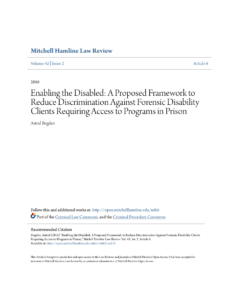Disability Discrimination in the Workplace
If you’re concerned about discrimination, you may want to learn how to reduce disability discrimination in the workplace. The law requires employers to give employees reasonable accommodations, and many times that means rewriting company policies. As an employer, it’s your duty to make sure you’re following the law and keeping everyone on your team happy. To prevent disability discrimination, you should have a strong anti-discrimination policy, and you should discuss it with all employees during the onboarding process. Some companies even have their workers sign a statement saying they’ll comply with the policy.
Another key step in preventing disability discrimination is to avoid using negative or offensive language. Avoid using terms and phrases that may be offensive to people with disabilities, and try to use terms that are meaningful to the person. Also, remember that employee protection laws extend into the recruitment process, so you’ll want to know exactly what questions to ask and make sure you’re following hiring practices that aim for candidate equity. And remember to avoid using ableist language and a negative tone when discussing disability.
disability discrimination at workplace
When it comes to the workplace, disability discrimination is a huge problem for those with disabilities. In fact, it’s estimated that 17.9% of disabled people are employed, but their salaries are lower than those of their non-disabled peers. Many disabled people end up working part-time or in seasonal positions with no benefits, while others continue to work full-time until retirement age. But the issue of disability discrimination is real, and it’s critical to learn what types of discrimination exist and how to prevent them.

How to Reduce Disability Discrimination in the Workplace
Discrimination can come from a number of different sources within a workplace. Whether the perpetrator is a supervisor, co-workers, clients, or fellow workers, it’s illegal to discriminate based on disability. In the case of workplace harassment, retaliation takes the form of a hostile work environment that can lead to firing or demotion. If you or a loved one is experiencing disability discrimination, don’t hesitate to file a complaint or seek legal assistance. You can also ask your employer to make reasonable accommodations for you.
While you’re in the process of filing a complaint, don’t forget to inform your employer of your claim. This is the first step in taking legal action. The next step is to file a formal complaint. Once you’ve filed a complaint, the commission will conduct an investigation. The purpose of the commission is to get both sides of a story and resolve it. The commission may contact both the respondent and complainant to collect additional information or documents.
If you’re worried about the effects of disability discrimination, you should always check if your company requires a physical exam. Despite the fact that this might seem like an obvious step, you must be sure that your employer’s policy is not discriminatory. Besides, it could have adverse consequences for your career. If you don’t have a disability, you may want to consider applying elsewhere if you have a similar disability.